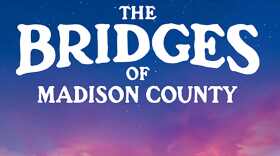Lee County Commissioners Tuesday endorsed further analysis of a plan for the Cape Coral Bridge replacement. Two alternatives to the current bridge have been proposed, with overwhelming public and board support going to the choice known as alternative 1.
A project study is underway to ensure compliance with the National Environmental Policy Act. Commissioners voted unanimously to have the transportation staff work on alternative 1. However the option not building a new bridge will remain an option during the process.
The area for improvement doesn’t include only the bridge. Both the intersections of Del Prado Boulevard and Cape Coral Parkway and College Parkway and McGregor Boulevard mark the westernmost and easternmost points of the project.
The current bridge connects Cape Coral Parkway and College Parkway over the Caloosahatchee River. Alternative 1’s cost of $301 million compared to Alternative 2’s $310 million sparked support for the former. Its other features, including a U-turn under the new bridge on the Fort Myers side stood out.


“Our goal through this project was to look at how we could improve the traffic flow towards Cape Coral and coming back,” Lee County Department of Transportation Deputy Director Rob Price said. “The intersection of Caloosa Yacht and Racquet (Drive) and College Parkway causes a major congestion issue that spills back all the way out onto McGregor Boulevard. Having this U-turn movement will allow those vehicles leaving Caloosa Yacht and Racquet to stay in the right lane, and not have to merge over.”
Some features remain consistent across both alternatives. At the intersection between College Parkway and McGregor Boulevard, there are plans to add a free flow lane with 1,000 feet to merge into traffic for the eastbound to southbound right. The existing signal would be closed.
The bridge would go from four to six lanes to alleviate traffic, drainage ponds would be placed under the bridge and all tolls would be electronic.
Ideas for pedestrian and bicyclist safety and amenities are being developed. Concrete barriers may be added across the median of the bridge to prevent jaywalking and vehicle-on-pedestrian collisions. This addition would require a pedestrian bridge. A location and design have yet to be decided, but it’s been targeted for the Cape Coral side.
“When we looked at the existing pedestrian volume out there and we projected it out to the future, we’re looking at about 140 crossings or more a week,” Price said. “We do show from our five-year analysis there was a crash involving a cyclist along this stretch of Cape Coral Parkway that caused incapacitating injuries, so that also brings to light the fact that there's a need for a crossing somewhere along this stretch. The analysis indicates the need for a pedestrian bridge along Cape Coral Parkway and the DOT agrees with this conclusion.”
Full replacement of the westbound span of the bridge is also on the docket. The evaluation of the current bridge suggests that change should be made. The no-build alternative will not provide adequate capacity for anticipated traffic volumes in 2045 and has a “failing” level of service due to its age and several weaving conflict points. Users of the bridge are feeling its shortcomings during their commutes.
“It gets so backed up during rush hour, it takes so long to get to where you need to go sometimes,” commuter Doug Sweat said. “If there’s an accident, good luck getting to where you need to be on time. And you’ve always got to be careful in this area, we have older drivers on the road that may struggle in traffic.”
The current bridge had its westbound lane constructed in 1963 and the eastbound span in 1989. Both alternatives 1 and 2 have structure lives of 75 years, which indicates that this way of getting around will be part of Lee County’s future and community for a long time to come.
“Them building a new part of the bridge seems like a really good time investment,” commuter Tyler Rogers said. “If things stay the same and more people keep coming here, traffic is going to get worse and worse, and it’ll be so hard to get to either side, especially if you go back and forth for work. If they spend a couple of years building, and they don’t have to make any huge changes for 75 years, that sounds really good to me.”
According to the Cape Coral Bridge project website, construction of the new westbound span is planned to start in 2026, with the study ending in late 2024. Four lanes of traffic will remain open during construction. The length of time spent on construction raises questions about how the next few years will pan out when it comes to safety.
“If we’re talking about minor accidents, there’s probably one or two a week that we see,” Matt Wittman, a systems programmer at the Florida Department of Highway Safety and Motor Vehicles, said. “Since I started working for the highway patrol about a year and a half ago, there have been maybe five or six wrecks that I’ve seen that have closed it down for a significant period of time.”
Wittman added that while construction won’t be completed for a while, he feels the changes being made to the bridge and its surrounding intersections is worth it in the long run, especially in the case of another devastating storm like Ian.
“It gives comfort that the county is investing into improving the bridge, especially after what happened to the Sanibel Bridge during Hurricane Ian,” Wittman said. “Both as a resident of Fort Myers and a state employee, it feels good that they want to improve it so that something so devastating doesn’t happen again.”
Emma Rodriguez is a student-journalist in the Democracy Watch program, a collaboration between WGCU News and FGCU Journalism.




